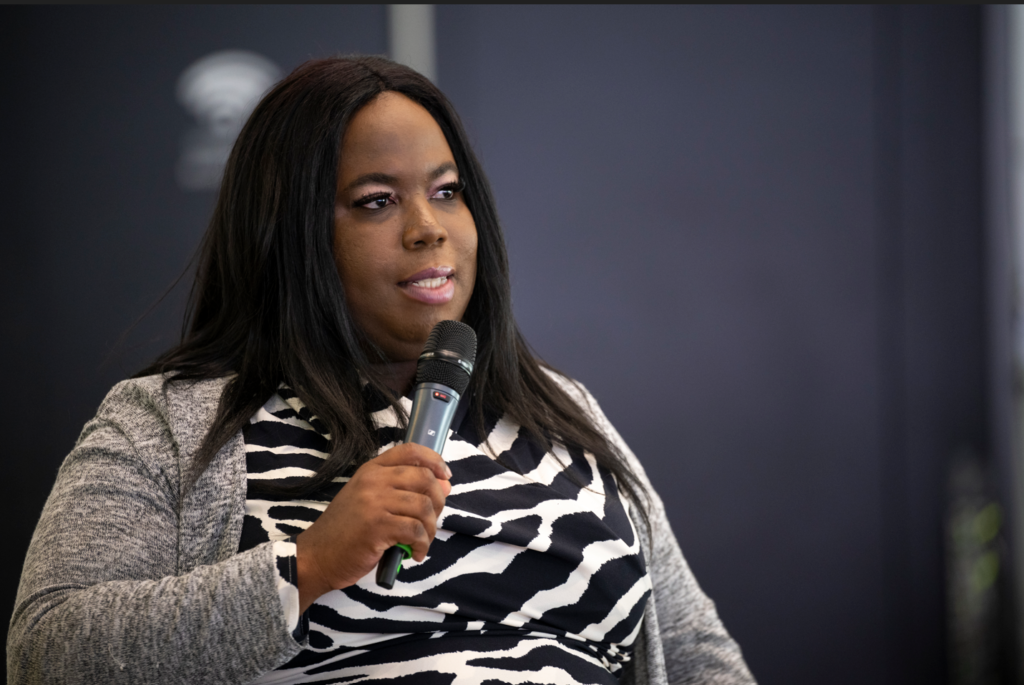« If the WHS is anything to go by, it is a testament to commited stakeholders who believe in a shared future anchored in solidarity and equity »
by Dumi Gatsha

The Global Fund has played a critical role in saving lives and advancing the right to health across the world. Including in far out, remote locations such as the Okavango district in my home country, Botswana. Known as a tourist gem and one of the districts the NGO I founded, Success Capital Organisation, serves. As sub-sub recipients of the Global Fund, we work directly with key populations whilst advancing broader SRHR efforts through other partnerships. Through the Global Fund, we have documented human rights shortcomings in access, uptake and sustaining healthcare inclusive of HIV prevention, including amidst the COVID-19 pandemic hard lockdowns under a 1.5 year long state of emergency. More importantly, we have unearthed various gaps that need to be addressed to ensure no one is left behind in fulfilling SDG 3. These insights, our expertise and experience in grassroots environments could have not come at a more important time when attending the World Health Summit.
Coming from a lacklustre participation at the Sustainable Development Goals (SDG) Summit and High Level Meeting (HLM) on Universal Health Coverage (UHC). I was yearning a bit more engagement and interaction on some of the challenges and opportunities we face. Although this was my second visit to Berlin, it was the first WHS I could participate in fully. Last year, in the rallying work towards the HLM, the steering committee of UHC 2030, of which I am an alternate member, met alongside the WHS. Meaning I could not fully participate. So when the Friends of the Global Fund Europe invited me, I could not hesitate to navigate the Schengen Visa hassles. Global events that have been held in the Western world coming out of hard lockdowns and travel restrictions have been characterised by elitism, exclusion and inaccessibility in various forms, with the most prominent in visa processes, immigration points and costly logistics. This does not precede the pandemic of course, but only feels more regressive and prohibitive for many activists.
I note this reality because it reflects the global health system; where citizenship, migrant status, affordability and identity can all have an impact in how one accesses health care. Under the theme of « A Defining Year for Global Health Action », 2023’s WHS could not be more telling. The year of three HLMs that have left out some civil society demands, the Bridgetown initiative having taken place and the 75 year anniversary of the establishment of the World Health Organisation. From other quarters of the world, it is the 75 year anniversary of the Universal Declaration of Human Rights and the 20 year anniversary of the Maputo Protocol; Protocol to the African Charter on Human and Peoples’ Rights on the Rights of Women in Africa. These are important to reflect on amidst an atmosphere of polarised priorities, political will and people. I do not think this atmosphere is in isolation of increased anti-rights rhetoric, conflict and state debt. Many countries like where I’m from, that are middle income and/or have high inequality; are faced with significant socioeconomic challenges. This only means a more complex road ahead of global, climate and development commitments, replenishments and fundraising across the global and regional multilateral landscape shall have competing interests in a seemingly narrow fiscal, philanthropic and development resourcing base. However, I do not see this as a challenge.
I see opportunities for deliberating and negotiating the fulfilment of universal health coverage for everyone. Opportunities in the protracted processes that are exploring feminist foreign policy, along with those emanating from the pre-existing Generation Equality, ICPD +25 and COP commitments. If the WHS is anything to go by, it is a testament to commited stakeholders who believe in a shared future anchored in solidarity and equity. A kind of world where a non-binary, bi-polar grassroots activist can raise a hand, exchange views and receive feedback [on the margins of formalities] with Peter Sands. A world where I can share space with other advocates, even if only three, to unpack intersectionality within narrow and restrictive civic space settings. I could not be more inspired and energised despite the burnout. This only signifies the importance of connecting people who are worlds and realities apart. That hierarchies, institutions and those that drive them, can come together to find solutions. It’s a takeaway I will continue to push for as it becomes increasingly difficult to find allies that aren’t performative or pink washing. An increasingly unequal world that is disconnected and disenfranchised needs a little more solidarity like sunshine, where everyone deserves some.
—
Dumi Gatsha is a GFAN Speaker, a UHC 2030 steering committee alternate member and founder of Success Capital Organisation, a sub-sub recipient of the Global Fund providing community health and justice referral services, whilst working in the nexus of human rights and sustainable development at grassroots, regional and global levels.
Read the article « We, the People », the preparatory conference to the World Health Summit in Berlin
